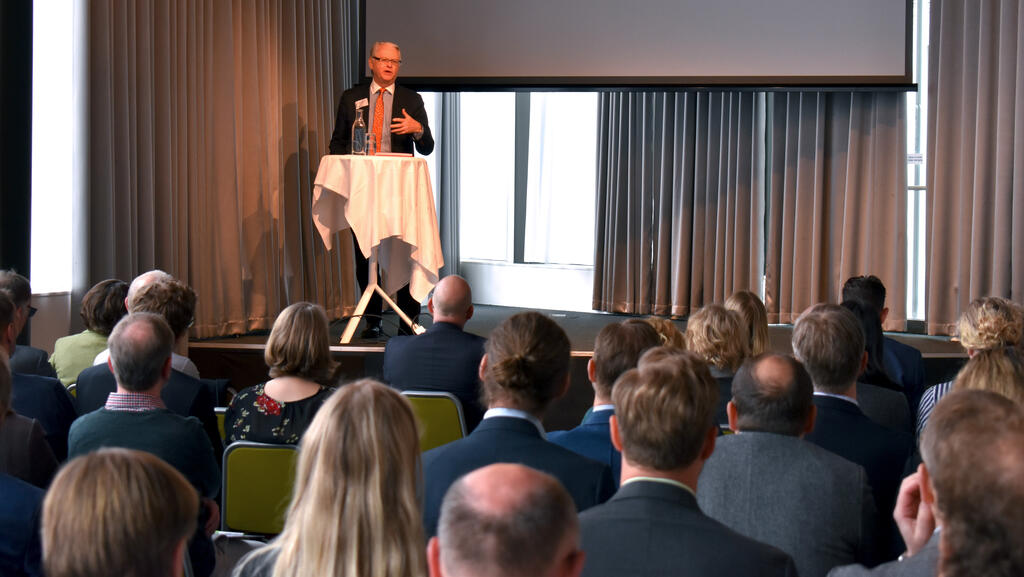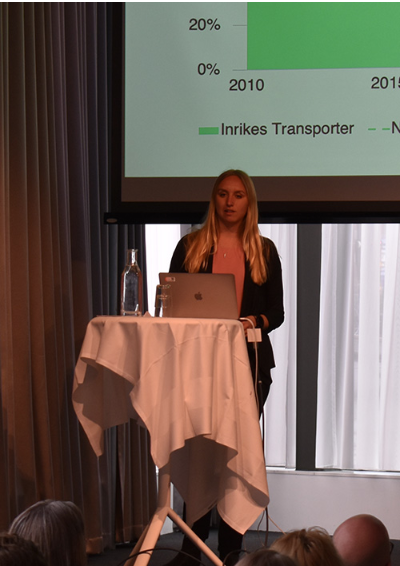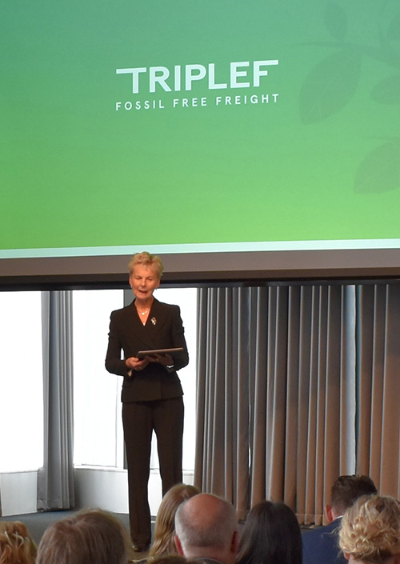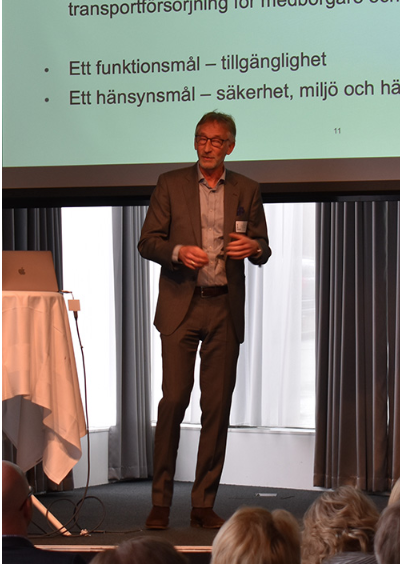A Society with Greater Transport Efficiency
During Triple F's annual meeting on 11 April, the focus was on emphasising challenges as well as presenting the results within the programme thus far. The results that were presented were a survey of technology's role in the shift to become fossil-free in the future, the systematic follow-up of statistics and an analysis of the policy area in regard to to surrounding world.

Sweden has the ambition of becoming one of the world's first fossil-free welfare states with the goal of having zero net emissions of greenhouse gases by 2045 at the latest. The transport sector's shift is key to achieving this lofty climate goal. The transport sector's goal is to have achieved a reduction of carbon dioxide emissions by 70% based on the figures of 2010 by the year 2030.
"In my opinion, there are strong reasons to doubt that the emissions will be reduced by 70 per cent by the year 2030. Most people always want to be right, but I hope that my views are wrong," says Gunnar Falkemark, Professor Emeritus of political science at Gothenburg University.
Falkemark is referring to the many challenges that we face. He means that it is always difficult with such long-term goals, such as our ambition to reduce the emissions by 70% by the year 2030. He refers to similar decisions that have been made in the past. In 1980 the decision was made to eliminate nuclear energy by 2010 and we still have nuclear energy nearly ten years after that. Other obstacles that Falkemark emphasises are that no politicians that want to win an election will propose increasing taxes as a result of which not everyone could afford to own a car. He also mentions, among many other examples, the right-wing populist politicians in the world that deny that the climate crisis is a growing problem.
Through Triple F, we will address Falkemark's comments, because this endeavour is a nationwide gathering of strength in which Sweden's leading experts will work together towards the goal. The programme creates a foundation for a broad anchoring with Sweden's politicians and in order to develop policies, means of control and laws. Triple F's focus will be to create a society with greater transport efficiency, energy efficiency and fossil-free vehicles and means of transportation and an increased share of renewable fuels.
Triple F establishment project results
Results from the establishment projects within Triple F were presented during the annual conference. The goal of the projects is to develop a consistent follow-up system to which the various participants within the project can refer in the future.
"With respect to the share of heavy transport in 2017, heavy lorries were responsible for approximately 65% of transport work, but 95% of emissions. The railway was responsible for roughly 1% of emissions despite the fact that nearly 27% of transport work was carried out by railway. Maritime shipping's emissions also accounted for a lower share of emissions relative to their share of the transport work. Shifting freight transport from heavy lorries to railway and maritime shipping for the freight and routes where it is possible entails several advantages in regard to the climate," explains Johanna Takman, VTI.
"What's exciting about renewable fuels is seeing how the share of HVO has increased over the time period and what effects it has had on emissions. In 2017 we had roughly 21% renewable fuels in the domestic transport sector in comparison with about 6% in 2010," continues Takman.
Presentation materials and results within Triple F thus far are available here>
Triple F's chairperson Elisabeth Nilsson and Jacob Gamenius from the Swedish Transport Administration presented during the day. Elisabeth talked about Triple F and its success factors and Jacob presented the Swedish Transport Administration and gave a few examples of areas where the authority needs additional knowledge, which could be addressed within Triple F.
"Going forward, it is important for Triple F that we begin on a broad front with different research and innovation projects. We now have a well-functioning organisation in place, we have financing and will start a very exciting programme. The results will also be very much in demand," says Elisabeth Nilsson, Chairperson, Triple F.
"With respect to what the Swedish Transport Administration can do for Triple F, we know that many tests within the scope of Triple F's projects will require approval and, in such cases, the Transport Administration must be involved at an early stage. If it is not possible to grant us an approval, they may be able to grant us dispensation.' In this connection, it is important to maintain a continuous dialogue with the Transport Administration from early on. An early dialogue facilitates the process, because administrative times vary greatly and sometimes it can take a long time, so contact us as soon as possible in order to increase the likelihood that you can get started as planned," says Jacob Gramenius.



